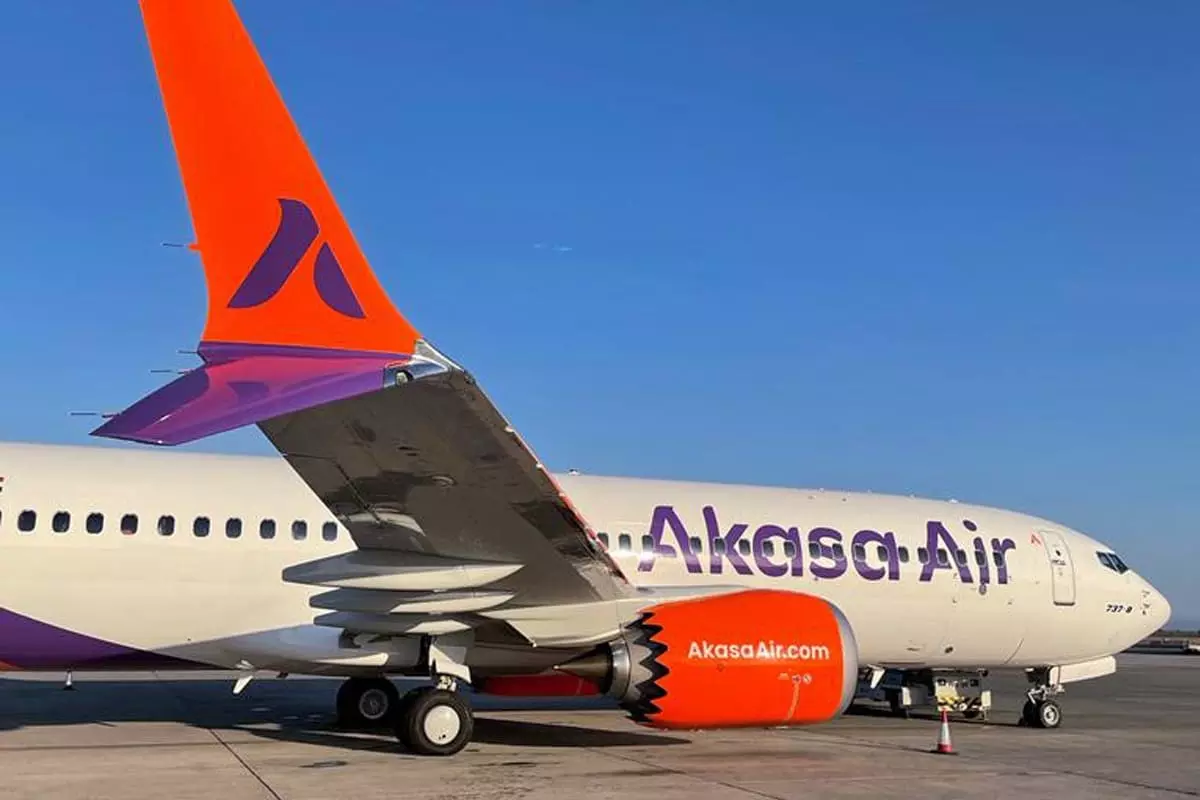
Newbie Akasa battles for survival in skewed aviation market
It's facing a pilot exodus and regulatory quandaries but the multiple challenges come with the territory when an airline is so young

India’s one-year-old airline, Akasa Air, has a problem that comes with the territory when an airline is so young.
The recent exodus of pilots to other airlines has caught Akasa Air in the headlights. But, it also underscores something more important. In a market where a single airline has an overarching market share of around 64 per cent, and another has a combined portfolio of three airlines, fledgling airlines such as Akasa Air will always face headwinds which are challenging to navigate.
The airline’s recent declaration to the Delhi high court that it may have to close down operations if the exodus of pilots continues and a later clarification from its CEO Vinay Dube that it has enough pilots at various phases of training to fly over 30 aircraft shows that while the problems are real, it is equally concerned about its reputation.
Dube seems intent on damage control. Over the last few days, he has repeatedly tried to assure his employees, vendors and passengers that even as pilots leave the airline, it has been inducting newer ones faster. And that the airline has been profitable from day one.
Akasa Air approaches Delhi high court
The crisis which triggered the claims and clarifications because of the exit of over 40 pilots and a possible cancellation of over 700 flights, prompting Akasa Air to petition the Delhi high court for intervention. The airline has also sought the Directorate General of Civil Aviation (DGCA) direction to enforce penalties against pilots who abandon their posts without serving the mandatory notice period.
The Court, scheduled to review this plea shortly, has also requested the DGCA to outline any measures it might take in case pilot departures lead to a spate of flight cancellations.
Interestingly, a Pilots' Guild has advised pilots to leave Akasa Air, alleging nepotism within the organisation. While this casts a shadow over the internal workings of the airline, which otherwise projects itself as financially stable and robust in its growth strategy, it has hit a wall in terms of actionable feedback or commitments from the regulatory body.
This perceived inaction by the DGCA places it in a delicate position concerning its obligation to protect public interests.
Exodus of pilots
The airline will have to address the grievances of the pilots head-on: Considering the crisis around pilot attrition, Akasa Air must also look at its corporate culture. Employee dissatisfaction often leads to poor performance and, eventually, an exodus. Transparent practices within the organisation, involving employees in decision-making, and focusing on leadership development can turn around employee sentiments.
The immediate fallout of the operational adjustments made by Akasa in the past month have reduced its domestic market share from 5.2 per cent in July to 4.2 per cent in August.
What is of more significance is that even if there is a pause in Akasa Air’s current challenges, it will continue to face issues unique to a young airline. With a market share of a mere 5 per cent, Akasa Air’s pilots and cabin crew will always look for opportunities with bigger airlines. At the same time, passengers will tend to opt for those which offer better schedules and connectivity.
Hence, it will have to offer incentives that keeps the employees to stay with the airline longer. For example, a better work-life balance, predictable schedules, reasonable work hours, and career advancement opportunities can help retain staff when stressful working conditions are taking a toll on pilots.
Another morale-boosting incentive for the airline staff would be offering ESOPs in the company, which no other airline offers so far except for the senior management.
The airline could also consider wet lease options where the aircraft is leased out along with the crew. This is an expensive option but may be necessary in the short term.
The airline could also open communication channels, which helps the employees to get their grievances addressed and also lets the management to keep its ear to the ground.
Competitive landscape
In addition to operational challenges, Akasa Air faces an increasingly competitive landscape marked by frequent fare wars and high fuel costs. Therefore, understanding the importance of customer retention is key.
Moreover, customer service can be another frontier where Akasa can gain an edge. Focusing on quicker resolution of customer issues, better in-flight service, and a smoother booking experience can certainly add value in a highly competitive market.
Despite the crisis, Akasa Air has shown resilience by posting profits since its inception. This speaks volumes about the airline's core operational capabilities. However, just being profitable doesn't solve the longer-term challenges of growth and stability. If Akasa Air wants to survive, it needs to move beyond just financial performance metrics and consider factors such as customer loyalty, employee satisfaction, and sustainability.

